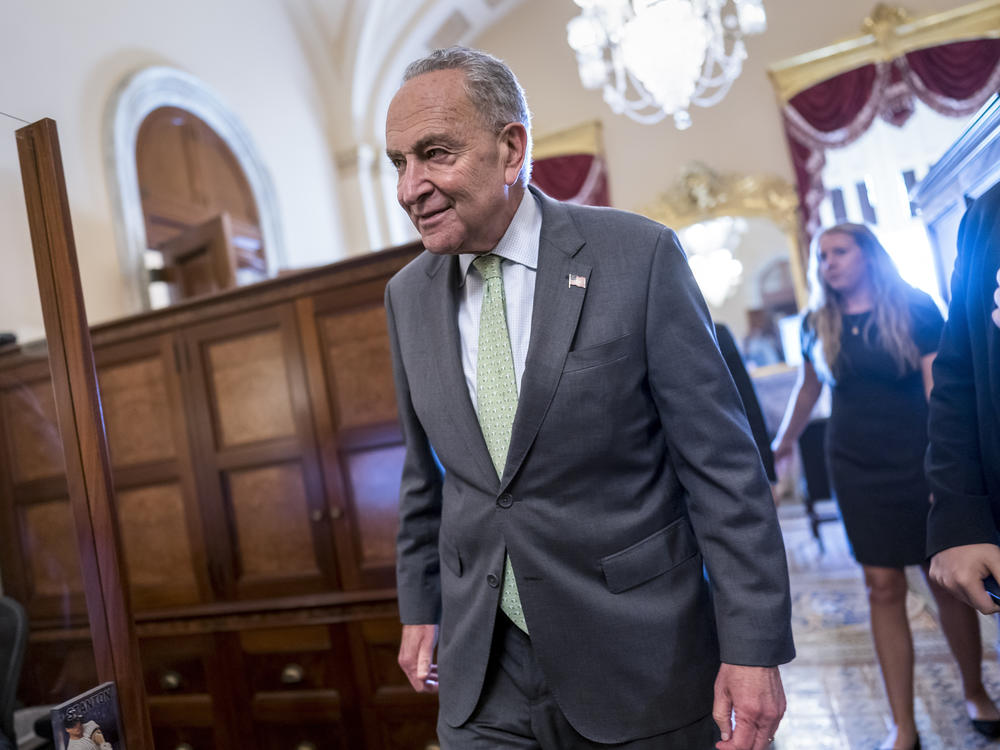Section Branding
Header Content
Senate will take up Democrats' tax, climate and health bill on Saturday, Schumer says
Primary Content
Senate Democrats' massive bill to address climate change, taxes, health care and inflation will move forward in the Senate on Saturday afternoon, Majority Leader Chuck Schumer announced Thursday.
Democrats are trying to pass the bill under a budget process known as reconciliation, which allows Democrats to pass the legislation without the threat of a Republican filibuster. All 50 Democratic senators will need to vote for the bill in order for it to pass, with a tie-breaking vote from Vice President Kamala Harris.
The vote Saturday afternoon would be a procedural one to begin debate. Up to 20 hours of debate can take place, split evenly between the two parties. It's likely that the full 20 hours will not be needed, as Democrats are expected to yield back a majority of their time.
Then, a process known as "vote-a-rama" begins, which means senators can introduce unlimited amendments to the legislation. There could also be a call for the entire 725-page bill to be read aloud.
Schumer said Thursday he's expecting the process to take a long time.
"I expect we'll have some late nights and extended debates here on the floor," he said.
Before it can get to the floor, the Senate parliamentarian needs to complete her analysis of the bill to determine whether it can be allowed under reconciliation in the first place.
And after that, passing the bill is still not guaranteed, as Arizona Sen. Kyrsten Sinema has not yet signaled her support for it.
Republicans, meanwhile, have repeatedly criticized the legislation. McConnell has called it a "goody bag of far-left environmental activists at the expense of working families."
He also says the bill would provide no relief, or worsen, inflation.
Data from the Congressional Budget Office shows the legislation would decrease the deficit by roughly $300 billion, but its impact on inflation in the immediate future is negligible, the office said. They also acknowledged the bill would affect inflation beyond next year, but that CBO has not evaluated those effects.
Economists like Larry Summers, who has been critical of the Biden administration's handling of the economy in the past, say the bill is a positive step and pushed back on critics who say the bill's impact on inflation won't be seen for a number of years.
"I saw a bill that, when fully analyzed, will have a positive impact on inflation — not a huge positive impact but a positive impact on inflation," Summers told NPR's All Things Considered.
Copyright 2022 NPR. To see more, visit https://www.npr.org.

